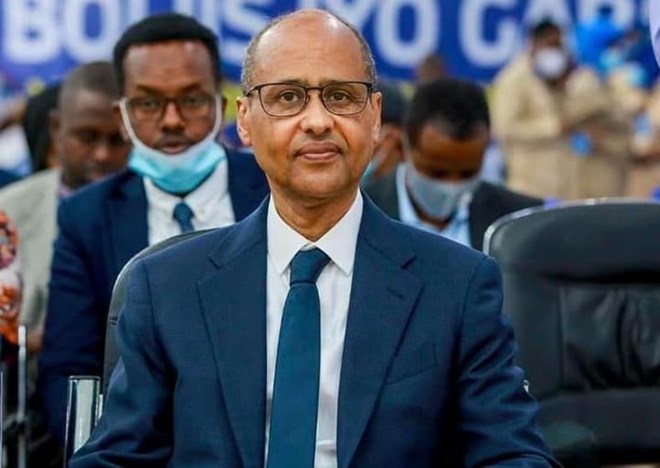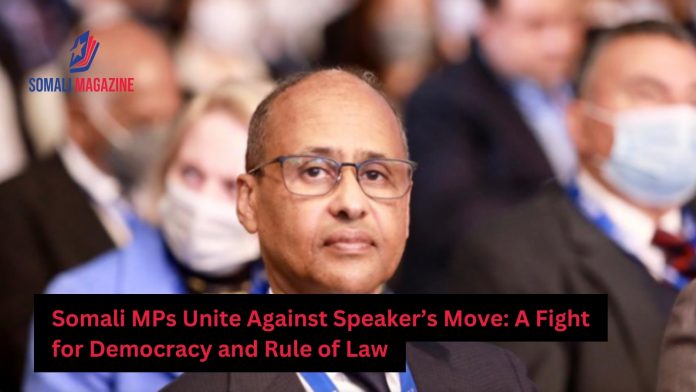Facebook Twitter Instagram Somali Magazine - People's Magazine
In a dramatic turn of events, over 100 Somali Members of Parliament (MPs) have united to reject a decision by the Speaker of the House of the People, Sheikh Aden Mohamed Nur “Madoobe,” to expel lawmaker Abdullahi Hashi Abiib. The MPs have denounced the move as unconstitutional and an abuse of power, sparking a heated debate over the legality and implications of the Speaker’s actions.
The controversy erupted on Saturday, March 15, 2025, when Speaker Madoobe declared Abiib’s parliamentary seat vacant, citing absenteeism as the reason. According to the Speaker, Abiib had missed two consecutive parliamentary sessions without providing valid reasons, thereby violating parliamentary standing orders. In a statement, Madoobe directed the Election and Boundaries Commission to organize a by-election to fill the vacant seat, which represents the northern Somaliland State.
However, the decision has been met with fierce opposition from 106 MPs, who argue that the Speaker overstepped his authority. In a strongly worded statement, the MPs declared the expulsion null and void, emphasizing that such a decision requires parliamentary approval and adherence to due process. “Declaring a seat vacant is not within the Speaker’s powers. According to the Parliamentary Standing Orders, a two-thirds majority vote is required to remove an MP,” the statement read.
The MPs further accused the Speaker of violating the Provisional Constitution and parliamentary rules, including Article 59, which outlines the grounds for declaring a parliamentary seat vacant. They also pointed to Article 70, which guarantees parliamentary immunity, arguing that Abiib’s removal without a vote undermines democratic principles and sets a dangerous precedent.

Political analysts have described the situation as a potential constitutional crisis, given Somalia’s lack of a constitutional court to mediate such disputes. Mohamed Dahir, a political analyst, suggested that Abiib’s removal may have been politically motivated, noting that other MPs with similar attendance records have not faced the same consequences. “This appears to be more about politics than procedure,” Dahir remarked.
The controversy has also drawn attention to broader issues of governance and accountability within Somalia’s political system. Critics argue that the Speaker’s unilateral decision undermines public trust in democratic institutions and highlights the need for stronger checks and balances. The protesting MPs have demanded that Madoobe rescind the expulsion and issue a formal apology to Parliament and the Somali public.
The dispute has sparked widespread debate among Somali citizens, with many expressing concern over the implications of the Speaker’s actions. “This is not just about one MP; it’s about protecting the integrity of our democratic process,” said Asha Koos, a federal MP from Awdal. Koos warned that continued targeting of lawmakers could lead to further divisions within Parliament and erode confidence in the government.
As the standoff continues, the focus remains on finding a resolution that upholds the rule of law and preserves the credibility of Somalia’s democratic institutions. The protesting MPs have vowed to escalate their opposition if the Speaker fails to reverse his decision, raising the stakes for both sides.
The controversy surrounding Abiib’s expulsion underscores the challenges facing Somalia’s political landscape as the country navigates its path toward stability and development. With tensions running high, the outcome of this dispute could have far-reaching implications for the future of governance in Somalia.

